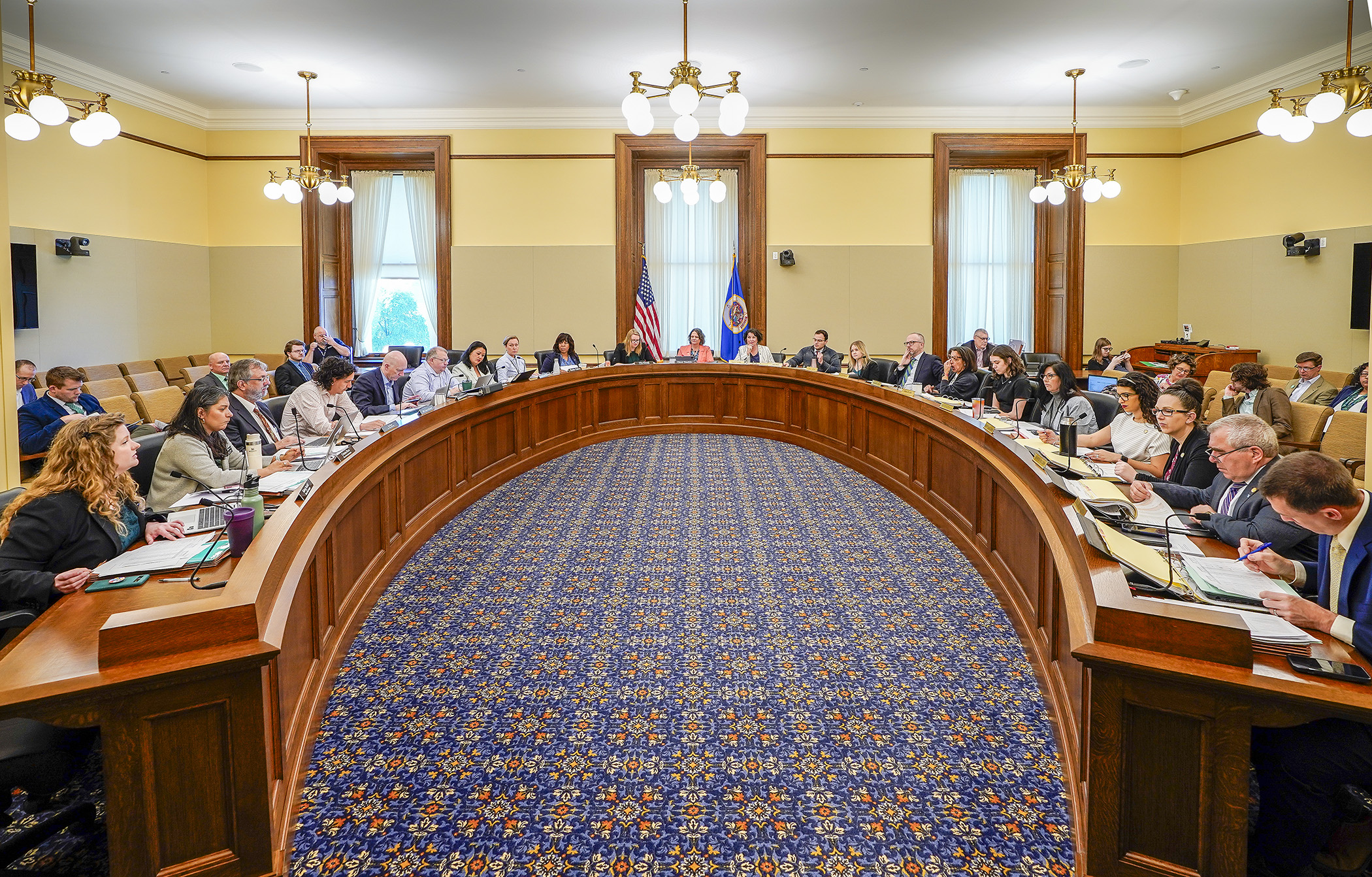Conference committee begins work on supplemental education finance bill

The education supplemental budget bill committee has some homework to do after its initial meeting Friday.
There are many differences between the House and Senate language and funding in HF5237, sponsored by Rep. Cheryl Youakim (DFL-Hopkins) and Sen. Mary Kunesh (DFL-New Brighton), that conferees will need to hash out in the coming days.
Conferees received a walk-through of the bill that would increase education spending by $43 million in fiscal year 2025.
[MORE: View net changes from February 2024 forecast base]
Both bodies have several funding provisions for the same programs but appropriate different amounts to each, including the Read Act.
The Senate would appropriate $7 million for professional development while the House language includes $4 million for that purpose. But the House would fund teacher stipends and other professional development with $31.3 million, while the Senate language would fund it with $23.8 million.
Senate-only provisions include $1.5 million for evidence-based reading instruction training reimbursement and $500,000 for regional literacy networks paraprofessional training. House-only language would fund $375,000 for CAREI paraprofessional and volunteer training and $375,000 for regional literacy networks and paraprofessional and volunteer training.
[MORE: House passes $43 million supplemental education finance bill]
Youth funding
House language would grant $750,000 for the activities of the Minnesota Youth Council, double the Senate version. The Minnesota Alliance With Youth would receive $1.5 million via the House plan, far more than the $625,000 proposed by the Senate.
The House would appropriate $627,000 for rulemaking related to health education standards, the Senate $132,000.
A Senate-only provision would appropriate $300,000 for a grant to 826 MSP, an organization that amplifies the voices, stories, and power of K-12 students of color through writing, publishing, and leadership programs. Funds would be used for programs for students from low-income families and students of color to strengthen literacy skills, increase student engagement, and develop student leadership.
Internet council
A Senate-only provision would establish a 25-member Digital Citizenship, Internet Safety and Media Literacy Advisory Council and fund it with $151,000.
Its charge would be to make recommendations to the Department of Education regarding the best practices relating to instruction in digital citizenship, internet safety, and media literacy and methods of instructing students to safely, ethically, responsibly, and effectively use media and technology resources. A report would be due to the Legislature by Jan. 14, 2026.
Student attendance and truancy
House-only language would establish a pilot program to develop and implement strategies to improve student attendance and help policymakers determine how to effectively support school district efforts to improve student attendance and engagement. The program would be funded at $3.33 million, with nine school districts participating in the three-year program.
A legislative study group, funded with $64,000, would look at issues related to student attendance and truancy. Its final report would be due the Legislature by Dec. 31, 2024.
 The education supplemental budget bill conference committee meets May 10. (Photo by Andrew VonBank)
The education supplemental budget bill conference committee meets May 10. (Photo by Andrew VonBank)Similar Senate language would establish a student connections pilot program to improve student attendance. It comes with a $5 million appropriation.
Another House-only provision would allocate $117,000 to establish a task force on English learner programs to analyze how schools use English learner revenue; consider how certifications may be used to improve collaboration between teachers working with English learners; and, make recommendations on how revenue can be used more effectively to help students become proficient in English and participate in education programs.
Other House-only provisions include:
- $7 million for a paid student teaching pilot program;
- $440,000 for a special education contracted report; and
- $50,000 for a carveout to the Professional Educator Licensing and Standards Board for computer science teacher licensure activities.
Other Senate-only provisions include:
- $5 million for mentoring and retention incentive grants for teachers of color;
- $3 million for safe schools supplemental aid for charter schools;
- $1 million for a collaboration of urban and Greater Minnesota teachers of color;
- $1 million for cardiac emergency response plan assistance;
- $500,000 for Girl Scouts councils' community engagement programs;
- $450,000 to provide free evidence-based literacy interventions to students who are reading below grade level and are enrolled in public schools where a majority of students are eligible for free or reduced-price meals;
- $250,000 to the St. Cloud school district for an emergency medical services education facility to offer high school students courses in emergency medical training. Base funding would be $500,000 beginning in fiscal year 2026;
- $150,000 for a teacher and paraprofessional compensation working group;
- $130,000 to establish a state school librarian in the Department of Education; and
- $64,000 to the department for a permanent school fund distribution of earnings task force.
Senate-only language would also return $840,000 of a $1 million appropriation to the Windom School District in fiscal year 2024 for a pupil enrollment count to the General Fund.
Related Articles
Search Session Daily
Advanced Search OptionsPriority Dailies
Ways and Means Committee OKs House budget resolution
By Mike Cook Total net General Fund expenditures in the 2026-27 biennium will not exceed a hair less than $66.62 billion.
That is the budget resolution approved Tuesday by the House Ways...
Total net General Fund expenditures in the 2026-27 biennium will not exceed a hair less than $66.62 billion.
That is the budget resolution approved Tuesday by the House Ways...
Minnesota's budget outlook worsens in both near, long term
By Rob Hubbard It looks as if those calling for less state spending could get their wish, judging from Thursday’s release of the February 2025 Budget and Economic Forecast.
A state su...
It looks as if those calling for less state spending could get their wish, judging from Thursday’s release of the February 2025 Budget and Economic Forecast.
A state su...